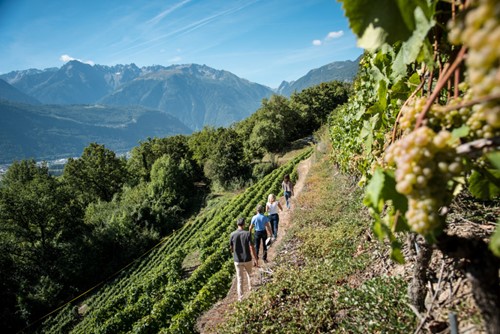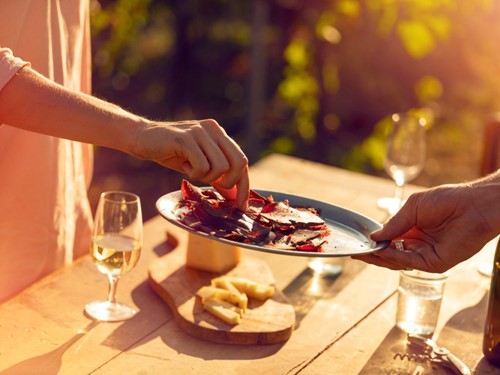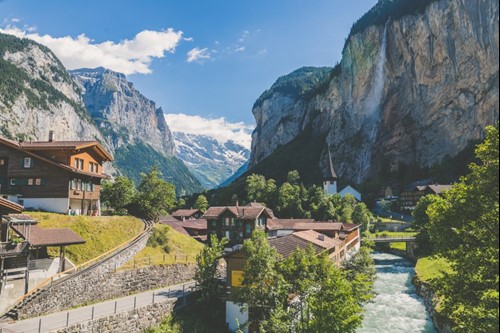Since the beginning of the crisis, travel and tourism have been among the most discussed topics in the media—a sign that travel is a fundamental pillar of modern society. Why? Discovery, escape, emotions, and a break from daily routine… the reasons are many and varied.
With the Covid-19 crisis, the white sandy beaches and Mojitos we imagined for summer are increasingly being replaced by Lake Geneva and the Swiss mountain regions. So, the question arises: can we really experience the same emotions from travel by staying “just in Switzerland” or close to home? And conversely, does travel really require a 14-hour flight with multiple stopovers, only to end up in overcrowded capitals and tourist hotspots?
This crisis gives us the chance to rethink how we travel—and Slow Travel is a promising avenue.

2017_Œnotourisme_Valais Wallis Promotion – David Carlier
Le Slow Travel
The concept of Slow Travel is simple but often difficult to implement in a modern society shaped by deeply rooted habits. It’s about savoring every moment and going with the flow. Transportation, the people we meet, local food, and producers all become central to the travel experience. Quantity is replaced by quality. It's no longer about visiting as many countries as possible or doing countless activities, but rather about embracing the present moment and integrating every element of the journey into the experience.

2018_Ete_Convivialite_Varen_1_©Valais Wallis Promotion – Pascal Gertschen
In Slow Travel, the destination is not what matters most
You don’t need to go backpacking through South America for three weeks to practice Slow Travel. It can be done over a weekend—even in a single day. It’s a mindset.
Slow Travel encourages local exploration and the discovery of regional producers and exceptional products. If we place less importance on the destination, we naturally become more inclined to appreciate places closer to home (and honestly, who enjoys 14-hour flights?). This results in less pollution from transportation and a stronger impact on the real, local economy. Slow Travel could very well be the key to sustainable and local tourism.
The current crisis is a chance to rethink how we travel—and perhaps relearn how to travel. In the short term, it could help boost our economy and support all those working in tourism.
In the long term, we may come to realize that Slow Travel is, in fact, the very essence of travel.

Magical Places in Switzerland
Our country is full of magical spots that many locals have yet to explore. From the Grisons to Basel, and through the Lake Geneva region, Switzerland offers a rich mix of cultures, traditions, and culinary delights that promise a wonderful experience. The tourism potential—especially among Swiss residents—is immense, and local tourism boards have clearly caught on.
Travelise
Since our beginnings, our clients have traveled without knowing their destination. We provide them with all the preparation info, and every step of the journey is a surprise. Our surprise travel concept allows them to live in the moment and discover new places across Switzerland and Europe. To promote local tourism, we launched SwissTours—100% surprise day trips to explore the most authentic corners of Switzerland.
